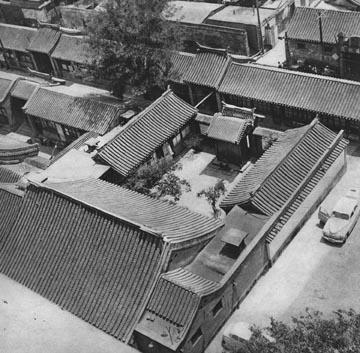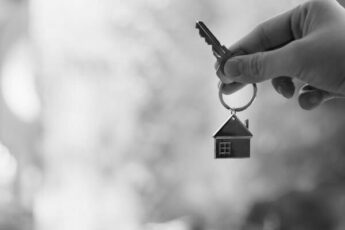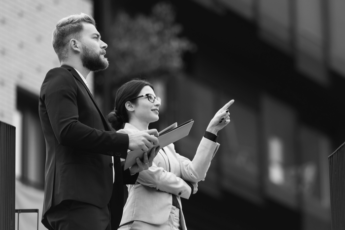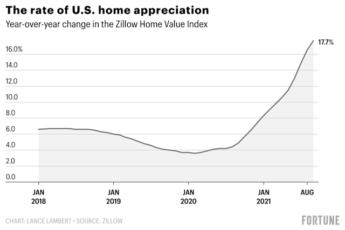Why do Chinese houses face south? This article discusses Siheyuan houses and three and five-bay houses, symbols of good fortune and yang energy. You’ll also learn how Siheyuan houses were designed. But if you’re still not sure, read on! Here are some other interesting facts about Chinese houses. You may be surprised! Read on to learn more! Now, you’ll understand why Chinese houses face south!
Siheyuan houses
Traditionally, Siheyuan houses face the south. The house’s layout is based on a hierarchical structure: the main house facing south is inhabited by the head of the household and has the best location. The house to the west is considered inferior to the one to the east. This means that the younger son must live in the west wing of the house and the young daughter can live in the main house. The opposite house serves as the kitchen, storeroom, or servants’ dwelling. Siheyuan rarely have a dining room or toilet.
In addition to facing the south, many of these houses face the east or west. They all have a courtyard that serves as a passageway and provides good ventilation and light. Many people prefer to sit in the center of the courtyard for resting and housework. The front of the house often faces the street while the back is typically a two-story building layout. A siheyuan’s front facade is usually covered in grass.
The construction of Siheyuan houses faces the south, which provides a fresh air source throughout the main house buildings. The courtyards are connected to the main inner door through a corridor called a Shao zhou. Inside the building, each courtyard is decorated in a Chinese style garden. Siheyuan houses have sparse furniture with minimal decoration. However, these houses are often the heart of old Beijing.
A siheyuan was traditionally built with four buildings, with the courtyard in the center. The walls of these buildings are taller than other types of buildings, which protect them from winter storms. The eaves also slant downwards to avoid raindrops from coming straight down. The roofs of siheyuan houses also have a ridged pattern to provide shade during the summer months while still retaining warmth during the winter.
In Beijing, Siheyuan houses face south. They are surrounded by green brick walls and contain 313 rooms. In fact, Beijing was one of the first cities in the world to develop the concept of «cubic» architecture. The layout of the courtyards was a central component of Beijing architecture, and it symbolized wealth and prosperity. These buildings are no longer occupied, but have been preserved to serve as housing complexes.
Three- or five-bay houses
The basic building unit of Chinese architecture is the bay, a structure made up of one or two bays grouped together, or one big room and several small rooms. The number of bays is usually an odd number, since an even number is considered unlucky. Three and five-bay houses are both common. The number of bays can be determined by a variety of factors. One of these factors is the size of the house.
A typical five-bay house has five bays, with windows arranged in pairs. A six-window bay, for example, would have two three-window bays and one three-and-three-quarter-window bay. This style was most common in Massachusetts, although you can find them in other parts of New England. Five-bay houses have distinctive characteristics, including high ceilings and large rooms.
Chinese houses are often built facing south. The reason for this is not entirely clear, but the Chinese have always believed the direction is more yin than yang. While some believe there are a million empty homes across the country, this is likely an exaggeration. The truth is that three or five-bay houses face south for several reasons. The most important is the general location of the main door, which should face south.
The design of the three or five-bay Chinese house can be complicated. The shape and size of the house depend on the family’s needs, but these houses typically have an inner courtyard and a north-south axis. These houses were the base for more complex structures, such as temples and palaces. The basic layout of three or five-bay Chinese houses is the same for rich and poor alike. It also reflects climatic differences between regions.
Symbols of good fortune
There are many symbols in Chinese culture that are attributed to good fortune. Often, these symbols are wordplays, and aren’t entirely clear in their meanings. The color red, for example, is considered auspicious in China, and is especially prominent during the Spring Festival. It’s not unusual to see statuettes of these animals placed throughout a home or business. A statue of a turtle, however, is also a good idea.
Many people place horseshoes in their homes. This represents good fortune and should be placed near a doorway. It is said that placing the horseshoe heels up is fortunate, as the metal will collect good luck in the curve of the artifact. Others believe that heels-down placement releases good fortune, while some believe the horseshoe should be placed upside down, pointing downward. Whatever your personal belief, it’s good luck to have a horseshoe in your home.
Symbols of good luck in Chinese homes are often associated with the entrance way. The door should be on the left side, so that it does not block the positive energy of the home. It should also have a curved path so that evil spirits won’t be able to enter the house. Another bad luck symbol is a staircase leading out the front door. These staircases are considered bad luck in Chinese superstitions, because they cause the resident’s fortunes to flow out the front door. Especially vulnerable are upstairs rooms with a door that opens directly in front of the staircase.
The laughing Buddha is another auspicious symbol. This is a laughing Buddha with a bag of wealth. When placed in the home, it will bring good fortune and prosperity. It is also recommended to place a statue of an elephant facing the main entrance. Another symbol of good luck in Chinese houses facing south is a crystal pyramid. This item purifies the mind and balances energy. It is especially useful if you have children.
Besides oranges, pomegranates are also symbols of good fortune. They symbolize the sun’s yang energy, which is known to bring prosperity. Pomegranates also represent prosperity, so placing pomegranates near the entrance will bring you wealth and protection. Additionally, there are six-fold knots that are believed to protect human life from bad energies.
Symbolism of yang energy
The Yin/Yang symbol represents the opposite manifestation of the positive and negative force in Feng Shui. The Yin/Yang symbol is less common than the others and has no particular location. However, it is very important to consider where your front door faces in order to attract the positive yang energy. The right place for a front door to be is facing south.
The Yin energy is related to warm, gentle, and relaxing surroundings. The Yin energy is associated with soft sand and a calm atmosphere. In contrast, yang energy is associated with heat and activity. It is represented by straight lines and angles. The sun is considered to be the yang energy. It is energetic, visible, and active. Hence, a house facing south should be surrounded by the sun.
The Yin/Yang symbol is a representation of the interconnectedness of the natural world. Unlike the yin symbol which depicts a sharp, horizontal line, it has a soft S-shaped dividing line. Yin and yang are not entirely black; they flow into each other and complement each other. The Yin and yang symbol is found in many Asian cultures.
Yin and yang concepts were first mentioned in the Chinese lexicon around 100 AD. In that time, yin and yang were often associated with different aspects of nature. Confucius and Lao Tzu adopted these concepts and the yin/yang symbol became an integral part of Taoism. This philosophy continues to be practiced today, and the Yin/Yang symbol is seen on many Taoist temples.
Do you understand the basics of IP addresses? What is Public IP? Is an IP address dynamic? And what does an IP address mean to law enforcement? Let’s find out! Also, read up on IPv6 and the Information it holds, and its potential role in securing the internet. By the end of this article, you should be well-equipped to deal with any situation that arises with an IP address.
Public IP address
An IP address is a unique number that identifies a device on the Internet. Your ISP will assign a public IP address when you sign up for an internet service plan. This address enables your computer to communicate with other devices on the public Internet. Because each device requires its own IP address, it is important to get one for each one. The information contained in your IP address is very valuable, and you should make sure you do not disclose it to anyone.
The Internet Protocol has two versions, IPv4 and IPv6, which define the format of addresses in a different way. IPv4 addresses are the most commonly used, and the generic term «IP address» refers to this version. The IPv6 version was first assigned as IPv6 in 1979, but is not commonly referred to as such. Both versions share some basic features, but they are still different. If you want to get the most out of your IPv4 address, you should switch to IPv6.
Because public IP addresses can be traced back to your ISP, you can use this information to track your online activity. Having your public IP address on your computer can also reveal your general geographic location, making it easier for governments and advertisers to track you. This information is also useful to websites, which use IP tracking to analyze the behavior of users and predict what they want to buy. If you want to remain anonymous on the internet, you should use a VPN or a proxy server.
While static IP addresses are more reliable, they aren’t necessary for most users. However, if you use an external device or need to access a device frequently, a static IP address will ensure a constant connection. The advantage of a static IP address is that it is one single address, while a dynamic IP address can change every few minutes or even a few hours. Moreover, public IP addresses can be shared or dedicated, so you can choose which one you want.
Dynamic IP address
When you connect your computer to a network, it will be assigned a dynamic IP address. This IP address may change periodically or not at all, depending on your ISP’s lease time or the DHCP server’s assignment. While most devices use dynamic IP addresses, some can do better with static IP addresses. These two types of IP addresses are commonly used today. Read on to find out which one is right for your computer.
There are benefits to both static and dynamic IP address assignments. Dynamic IP address assignment is easier to setup and administer. You can assign a certain IP address to a laptop, and then disconnect it for another one. It also doesn’t have a limit on the number of devices that can have a specific IP address. If your computer needs to be online for a while, a dynamic IP address will provide a new one.
The downsides of dynamic IP addresses are that they can cause intermittent downtime and connection dropout issues. These problems can be especially difficult for businesses. Additionally, because dynamic addresses don’t always reflect real-world addresses, it may not be possible to access your company’s website or communicate with employees. Also, dynamic addresses are unreliable for remote access, as many remote access programs are incompatible with them. For these reasons, businesses might want to use static IP address leasing as an alternative.
Although dynamic IP addresses are generally more secure than static IP addresses, they come with their own set of security concerns. DHCP automation can result in security vulnerabilities that may allow unauthorized people to access your data. If your employees are connected to DHCP servers, their information could be exposed. If employees need remote access controls to work from home, dynamic IP addresses may be more secure for you. If you use dynamic IP addresses for your home network, dynamic IP addresses are generally the best option.
While static IP addresses are more secure, they don’t work well for Internet-facing services. DNS does not work well with dynamic IP addresses. Although you can use Dynamic DNS services to solve this problem, you’ll incur a higher cost and more complexity. In addition to static IP addresses, there are also some disadvantages of dynamic IP addresses. These disadvantages are important to understand before making a decision. However, they are well worth considering.
Information associated with an IP address
When you connect to the internet, you can look up the geolocation information associated with an IP address. While the information provided is not specific, it can tell you where someone is, and it can even give you their city or ZIP code. There are many misconceptions about IP addresses, so you need to learn what you can and cannot do with this information. Fortunately, there is a gold mine of information that can be mined through IP addresses.
An IP address contains information such as the area code and city of the ISP, which can help a law enforcement officer track down suspects or confirm suspicions. While it cannot reveal your identity, this information can help others piece together the details of your online activity and determine your real identity. This information is public and is therefore used for law enforcement purposes. However, there are many risks associated with an IP address. First, it can cause your internet connection to become stressed or even completely cut off.
The IP part of an IP address stands for Internet Protocol, and it is used to identify computers. It is a unique number that ties all of your online activities to your computer. This happens within milliseconds. This information can get complicated very fast, so it’s best to leave it to the experts. This article provides a basic introduction to the subject of IP addresses. If you are concerned about your privacy online, take action immediately.
The researchers conducted a study of one IP address and found detailed profiles of an individual’s online activities. They also examined web server logs and contributions to online forums. All of this information was then combined to create a detailed profile of the person behind the IP address. This information could be used to target advertising campaigns, enhance cybersecurity efforts, prevent fraud, and stay compliant globally. However, this research is not yet complete. Further, these results have yet to be confirmed in a real-world setting.
In the coming years, there may be more specific guidelines and laws affecting how businesses handle IP addresses. California will require websites that receive 137 unique visitors per day from residents of the state to comply with CCPA requirements. In addition to this, additional guidance from the attorney general would be welcome. Businesses will need to reconsider their IP address handling practices and the internal tools they use to link IP addresses to individuals. This is because it may be considered personal information under the CCPA.
Law enforcement’s ability to identify an IP address
The question of whether law enforcement is able to identify an IP address has long been a topic of debate. Recent developments have complicated the definition of the term, and the scope of law enforcement’s ability to do so has broadened dramatically. An IP address is considered a form of personal data if it contains enough information to make a reasonable guess about the identity of the owner. There are several ways law enforcement can use IP addresses to identify an individual, but the most basic answer is that the IP address is merely a part of the service.
While IP addresses are powerful tools for tracking down criminals, they do not constitute probable cause for such a search. Law enforcement officers are likely to waste their time if a search warrant is based solely on an IP address. Using an IP address as a basis for a warrant will result in less evidence and less useful leads. This is because law enforcement agencies are often interested in finding a name associated with an IP address. In addition to law enforcement, entertainment companies will collect IP addresses from people downloading pirated content, and they can issue assignments to the ISPs that will reveal the contact information.
In some cases, law enforcement can obtain IP address information if they can establish reasonable cause and a court order. Despite this, law enforcement must still gather additional information in order to identify a person. A subpoena is a legal document that demands an IP address be provided by a computer. However, there are a few important exceptions to this rule, and it’s important to remember that it is not easy to get an IP address if law enforcement does not have a legal basis for doing so.
Even though an IP address is not personally identifiable, it is a powerful tool for tracking suspicious behavior. It can be traced to computers, hot spots, and the Internet itself. If multiple people are connected to the same hot spot, their IP addresses can be traced to them. That makes tracing an IP address easier than ever before. There are many other ways, but none of them is perfect. So, what is the answer?







